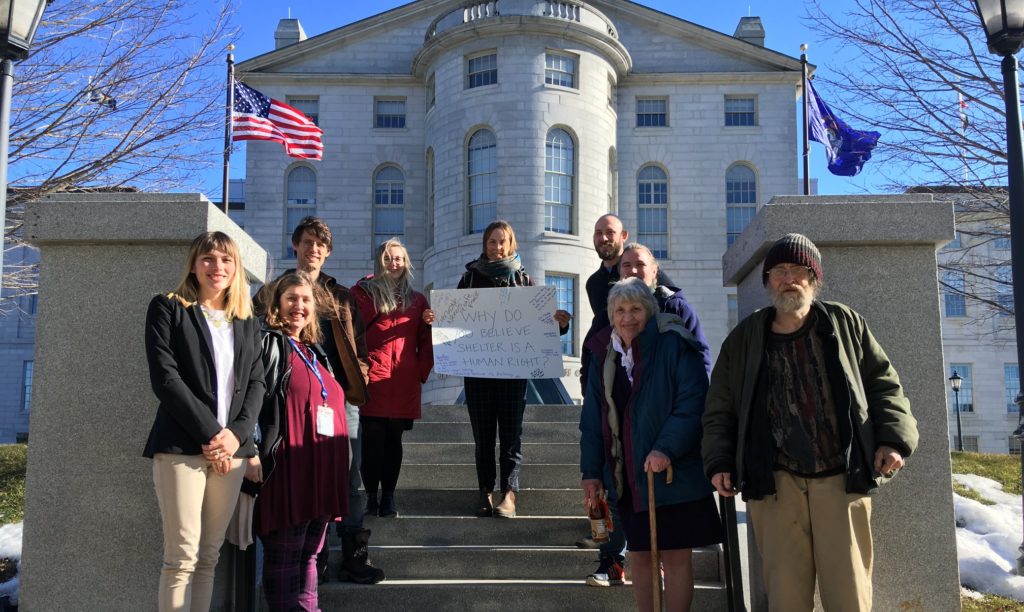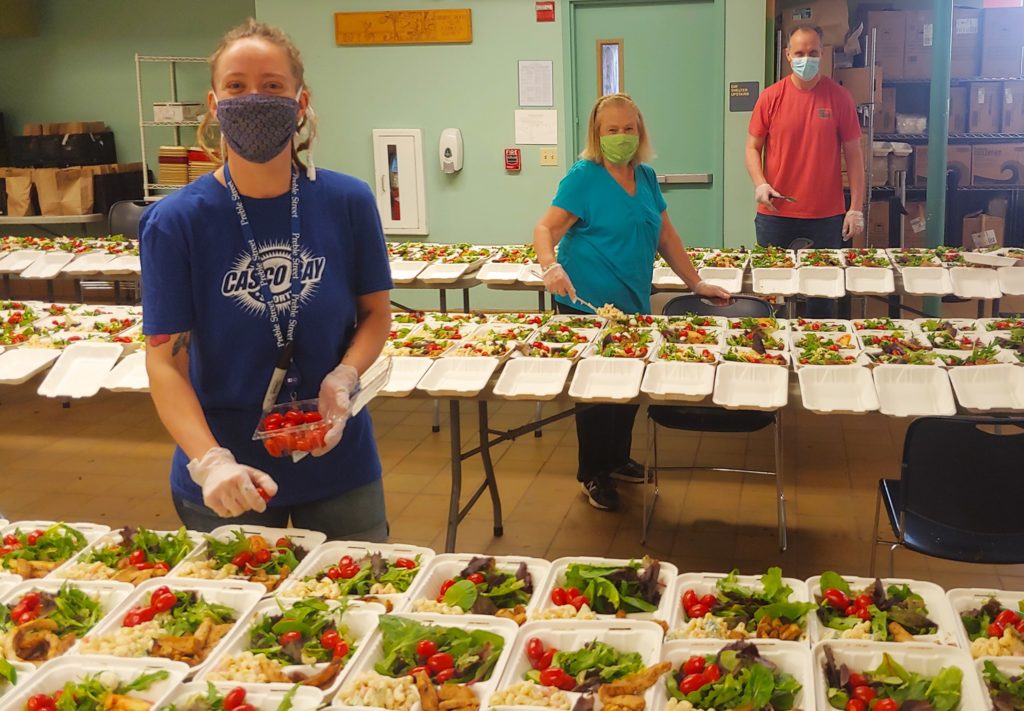ADVOCATING FOR SOLUTIONS
Read Preble Street’s Legislative Priorities for the short session of the 132nd Maine legislature here.
Preble Street is committed to motivating both the public and private will to end hunger, homelessness, and poverty in the lives of our neighbors and to building strong, equitable, and just communities.
Healthy communities depend on dignity, equity, and opportunity for all. In order to end the tragedy of long lines at shelters and soup kitchens, racial injustices, children experiencing hunger, and human trafficking, we must listen to the voices of the people directly impacted by those problems. These individuals are the experts of their own experiences, and we must support their participation in creating and implementing solutions.
Preble Street advocacy efforts work toward solutions to the social, economic, and political systems that have historically perpetuated the inequities of our society. Our advocacy work includes community organizing, policy advocacy, and systems advocacy.
Why do Hunger, Homelessness, and Poverty persist?
The issues of hunger, homelessness, and poverty persist in our country because of:
- Intergenerational poverty & wealth disparities
- Structural racism & the continued impact of White Supremacy
- Concentration of wealth into the hands of a few
- Gentrification
- Social policies that direct wealth upward
- Disinvestment from social services
- “Bootstraps” mentality
- Impact of COVID-19
The experience of poverty is intergenerational, and poverty is expensive. When a person’s resources are being stretched to make ends meet, any unexpected expense could mean total financial ruin.
We also know that the social systems that shape our society — like white supremacy culture — have tangible effects on homelessness and poverty. In Maine, Black and African American individuals are ten times more likely to experience homelessness than their White peers.
Meanwhile, gentrification is turning Portland and many other Maine towns into places where only the wealthy can afford to live and work, while the health and economic impacts of COVID-19 continue to increase the need for housing and food assistance in our communities. Despite all this, there is a prevailing idea that everyone can just “pull themselves up by their bootstraps,” a philosophy that places the blame of homelessness and poverty on the individuals experiencing it rather than the larger systems that perpetrate racial, social, and economic injustices.
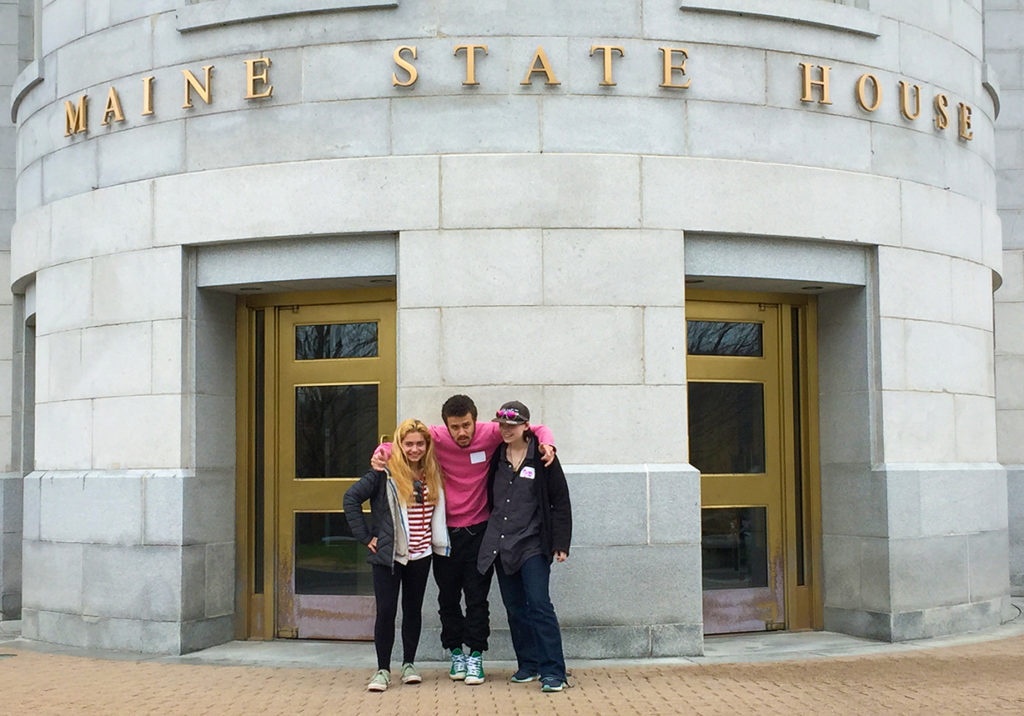
The barriers faced by the people we serve are numerous and complex. By focusing on key issues and enacting pertinent legislation here in Maine, we can lessen these barriers and empower the people and communities we serve. Learn more about the priority bills for Preble Street this year.
Homeless Voices for Justice
Homeless Voices for Justice is a state-wide, grassroots, social change movement, organized and led by people with lived experience of homelessness.
Maine Hunger Initiative
The Maine Hunger Initiative is a collaborative effort to meet immediate food needs while creating long-term solutions to hunger.
WHAT CAN YOU DO?
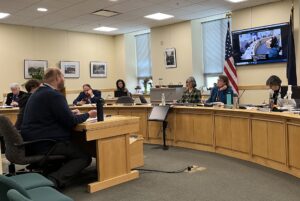
5 top legislative priorities – Spring 2026
The second session of the 132nd Maine Legislature began on January 7 and will run until April 15. Maine’s Legislature works in two-year cycles that include a long and a short session. We are in the short session, which covers only two types of bills: carry-overs (bills filed last session that still need to be
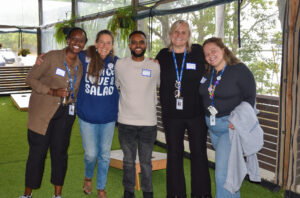
Doubling down on our mission in our 50th year
https://www.youtube.com/watch?v=j1j-w6NGTyc This short video reflects back on some of the impactful events of 2025 As I reflect on the 50th year of Preble Street, I’m struck by the contrasts. There was much cause for celebration — assuming operations of the Hope House low-barrier shelter in Bangor, the Grand Opening of the Food Security Hub, celebrating our
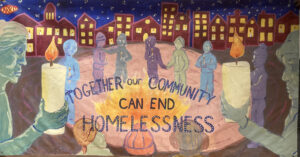
Annual Homeless Persons’s Memorial Vigil
VIGIL LOCATION CHANGE: Tonight’s Annual Homeless Persons’ Vigil has been moved to First Parish Portland Unitarian Universalist at 425 Congress Street, Portland. A candlelight procession will start at the MaineHealth-Preble Street Learning Collaborative, located at 20 Portland Street, at 4:30 pm and proceed to First Parish. Attendees are also welcome to gather inside First Parish beginning
